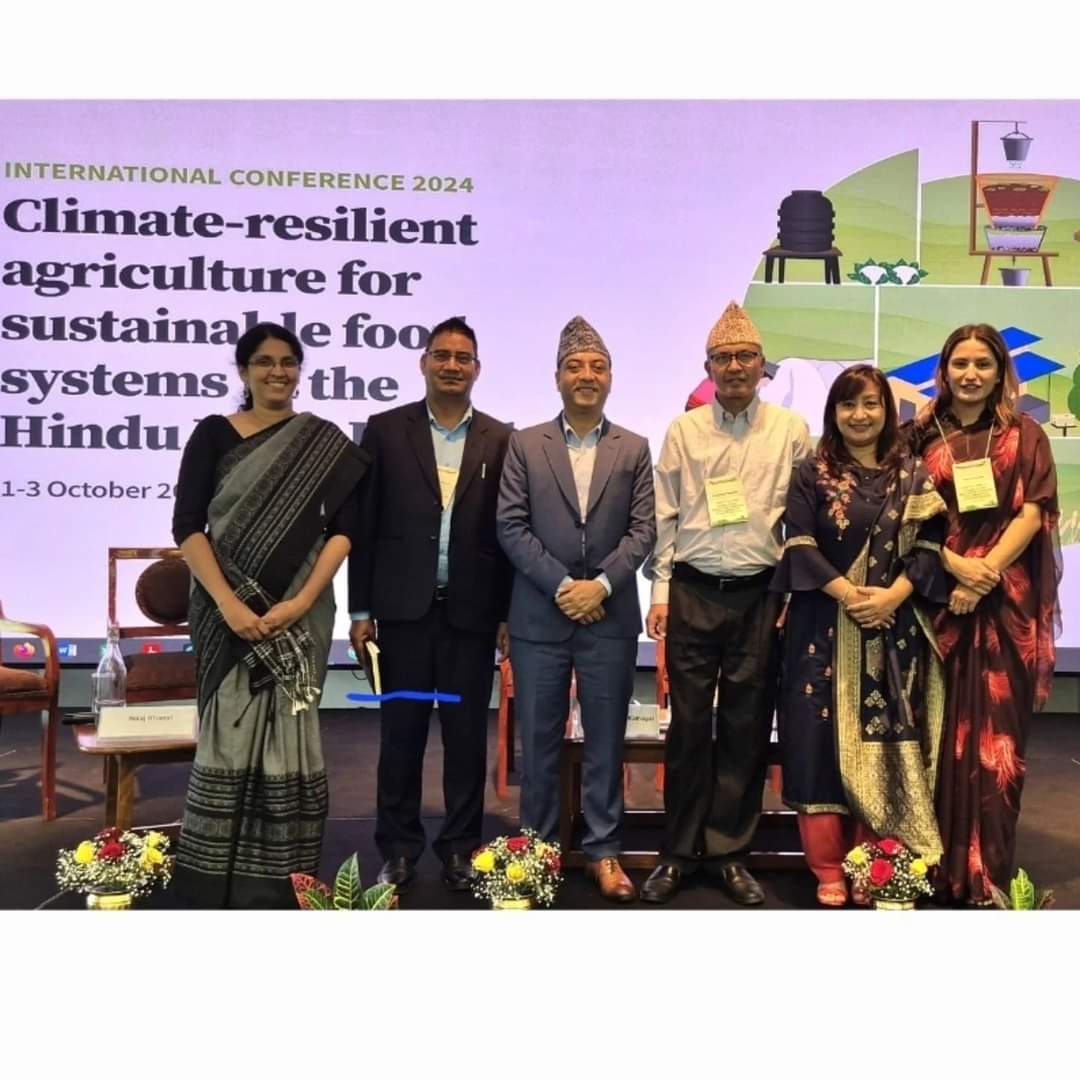Kathmandu, 04 October 2024 – Over 100 experts, academics, and policymakers from Bangladesh, Bhutan, China, India, and Pakistan convened in Kathmandu to address the pressing need for food system transformation in the Hindu Kush Himalaya (HKH). The region faces mounting challenges posed by climate change, biodiversity loss, and food insecurity, necessitating urgent action to safeguard the future.
The three-day conference, titled Climate Resilient Agriculture for Sustainable Food Systems in the Hindu Kush Himalaya, held from October 1–3, spotlighted the potential of agroecological farming practices to combat climate change while promoting food security. Participants emphasized that food and farming contribute to a quarter of global greenhouse emissions but can also play a critical role in climate solutions.
“It is urgent, in the teeth of the climate crisis, that we reshape agriculture in the Hindu Kush Himalaya,” said Abid Hussain, Head of the Economies work at the International Centre for Integrated Mountain Development (ICIMOD). He underscored the region's vulnerability, with warming occurring at double the global average, and highlighted the detrimental effects of industrial farming methods, such as chemical fertilisers and deforestation.
Speakers discussed the promising results of transitioning to climate-resilient and agroecological farming. Kamal Prasad Aryal, who led the action-research component of the GRAPE (Green Resilient Agricultural Productive Ecosystems) project, shared insights from a two-year initiative in Karnali and Sudurpashchim provinces of Nepal. The project demonstrated how low-cost, scalable solutions could improve soil health and increase farmers’ incomes.
“Our work in these provinces, working closely with smallholders, shows how low-cost, scalable agricultural solutions can really quite quickly result in better soil health on farms, which translates to better quality yield,” Aryal said. He urged policymakers, farmers, donors, and businesses to support and invest in these resilient agricultural practices, given their potential to uplift rural communities and combat climate challenges.

The event also featured remarks from Ramnath Adhikari, Honourable Minister of Agriculture and Livestock Development, Shahiya Ali Manik, Director of the SAARC Secretariat, and Benjamin Seidel, Deputy Head of Mission at the German Embassy in Kathmandu. Their presence underscored the international commitment to building sustainable food systems that benefit both people and the environment.
The gathering concluded with a call for greater collaboration in scaling up climate-resilient agricultural practices, digital solutions, and renewable energy technologies to secure a sustainable future for the food systems in the HKH region.